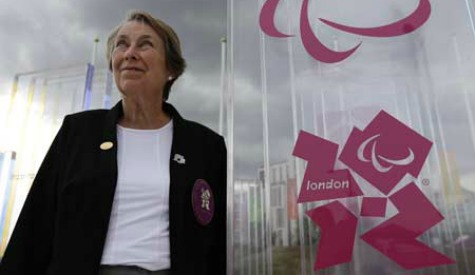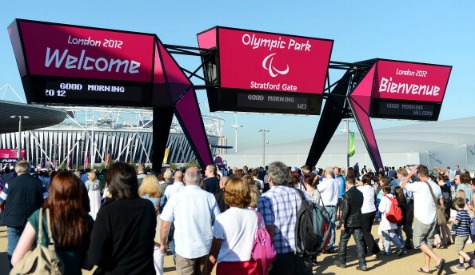 Eva Loeffler, daughter of the man who began the Paralympic Movement, Dr. Ludwig Guttman, has revealed that she is against the Paralympics merging with the Olympics for fear that the event will lose its unique identity.
Eva Loeffler, daughter of the man who began the Paralympic Movement, Dr. Ludwig Guttman, has revealed that she is against the Paralympics merging with the Olympics for fear that the event will lose its unique identity.
The possibility of such a move has been mooted for several years now and has gained fresh momentum following the success of London 2012, which saw record crowds and television viewing figures.
International Paralympic Committee (IPC) President Sir Philip Craven told the BBC earlier this year that he was "not dead against the idea, in principle".
Also, two years ago, during Vancouver 2010, Sir Philip's predecessor as IPC President, Canadian Robert Steadward, called for the Winter Olympics and Paralympics to be held together.
Having Paralympians taking part in the Olympics is something that Guttman himself predicted back in 1956.
Loeffler, who was the Mayor of the Paralympic Village during London 2012, admitted that although there were benefits to amputee athletes like South African Oscar Pistorius taking part in the Olympics, that there was a danger of it going too far.
"Whether it is a good thing I do not know," Loeffler told insidethegames.
"I think it may possibly be.
"That Oscar did not win [an Olympic medal] was fine in a way because had he won I think then there would have been discussions 'did he have an advantage'.
"Just like shooting and archery, people may think they have an advantage because they are sitting.
"I think it is a very good thing but it has its limitations.
"It raises the profile which is fine but to think of having wheelchair sport in the Olympics – like basketball or rugby is nonsensical.
"The Olympics should be competitions between Olympians and Paralympians, not to have separate games in the Olympics for wheelchair users."
Loeffler added that the complications of handling the increased number of athletes would present a logistical obstacle to such a merger.
"If you imagine having Olympic and Paralympic Games together, there are far too many people and the people who will be left out are certain to be Paralympians," she said.
"It is not at all possible." Given her importance in the history of the Paralympic Movement, her words have a particular significance.
Given her importance in the history of the Paralympic Movement, her words have a particular significance.
Loeffler fulfilled her duties as Paralympic Village Mayor by welcoming each national team and thousands of athletes at welcome ceremonies and showing dignitaries around the Olympic Park to take in the sports.
She said that the opportunity to perform the role was "a tremendous honour", and was keen to illustrate London 2012's success by pointing out that more visitors saw the first two days of action than turned up for 10 days of competition in Beijing four years' ago.
This summer's Paralympics were, of course, particularly poignant for Loeffler, coming as they do 64 years after the first Stoke Mandeville Wheelchair Games at Stoke Mandeville hospital in 1948.
They attracted just 14 athletes, participating in sports such as shooting and archery, and Loeffler volunteered to help organise the activities.
In 1952 Dutch athletes came across to compete for the first time at the annual competition, conceived as a way of rehabilitating injured service personnel after the Second World War.
Guttman, a Jewish doctor who fled along with Eva and the rest of the family from Nazi Germany by boat a year before the war, believed that competition would help to improve those muscles which still worked.
He also believed it was a way to integrate disabled people into society.
With the success of the Stoke Mandeville Games he convinced organisers of the Rome Olympics to hold the Paralympics for the first time in the summer of 1960, and 300 athletes took part in those Games.
By David Gold
Source: www.insidethegames.biz
